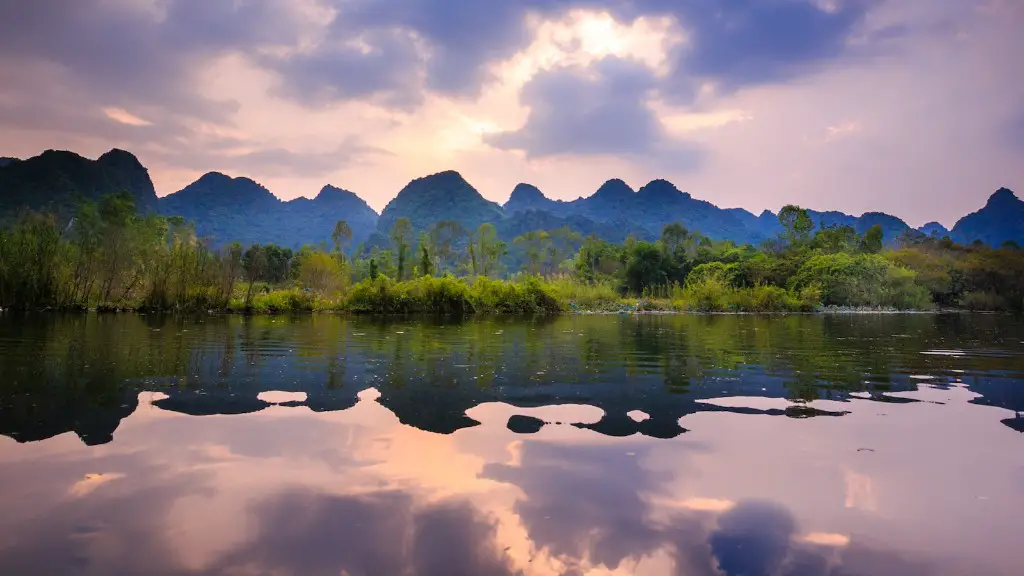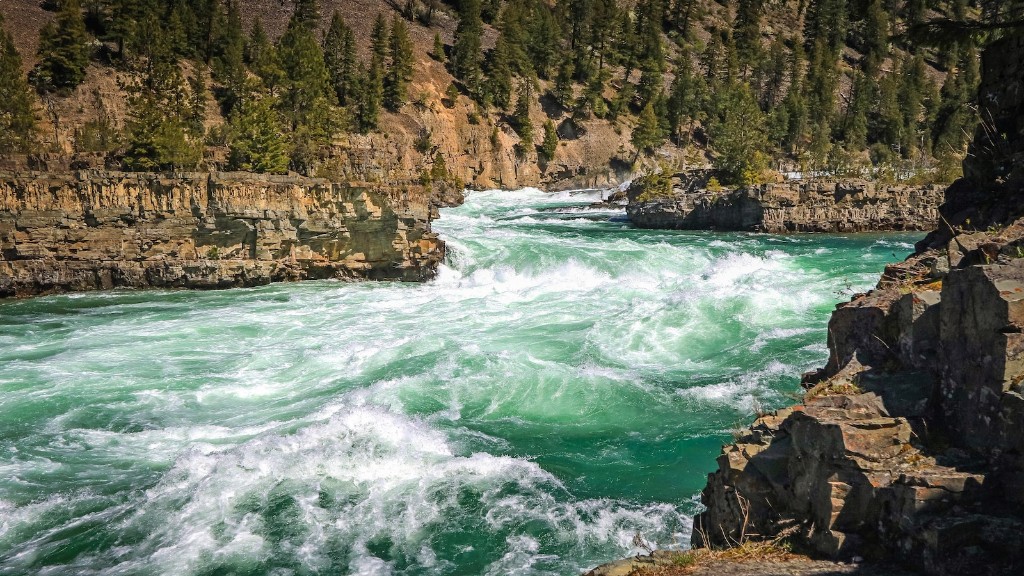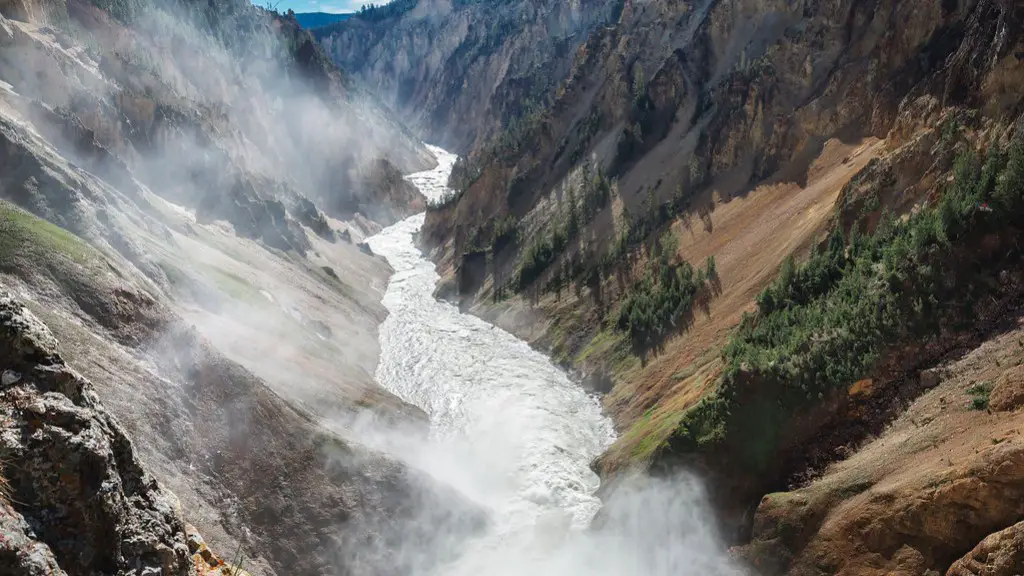The Nile River holds great importance for the ancient Egyptians, and its influence continues today. The Nile River is the longest river in Africa, stretching over 6,500 kilometers and flowing through 10 countries. It is one of the most important rivers in the world and is considered one of the longest rivers in the world. In Egyptian mythology, the Nile was seen as the source of life and prosperity. The ancient Egyptians used the rich soils along the river to grow and cultivate crops and build their cities, creating a plentiful and prosperous civilization. The Egyptians used the Nile for trade and transportation, allowing them to explore and expand beyond their own boundaries. Even thousands of years later, the Nile is still an indelible part of Egypt’s culture, economy, and lifestyle.
The Nile’s rich soil and reliable annual flooding made it possible for the Egyptians to cultivate crops, resulting in a surplus of food and resources. Ancient Egyptians were able to devote more time to the pursuit of knowledge, architecture, and the arts, creating a prosperous and populous civilization. The reliable flooding allowed the Egyptians to develop irrigation systems, improving the fertility of their fields. Where the Nile did not flood, large areas of land became salty and lacked sufficient water resources. But with strategic irrigation systems, the ancient Egyptians could channel water to these lands, enabling them to create and sustain vast agricultural lands, expand their population, and build cities.
The Egyptians used the Nile as a major trade resource, exchanging goods and services with its neighboring countries. Egypt became the hub of a major trade route, linking Sub-Saharan Africa, Egypt, and other markets along the Mediterranean. This exchange of goods and services gave Egypt an edge over other nations, allowing it to quickly accumulate wealth and resources. The Egyptians used the profits from their trade activities to make further investments, creating new and creative products. Trade along the Nile also allowed for the exchange of ideas and cultures, enriching the entire region.
The Nile also served as a vital transportation resource for the Egyptians. They sailed vessels along the river to move goods and services to and from cities along the banks. Even after land transportation was introduced, the Nile was still a preferred form of transportation. The river also made it easier for Egyptian armies to move swiftly and conquer lands beyond their boundaries.
The Nile is often thought of as the source of life and prosperity in Egypt, and its importance cannot be understated. Today, the Nile still holds a special place in the hearts of many Egyptians, and its influence on their culture, lifestyle, and economy continues. The ancient Egyptians and their successors have left an indelible mark on our history and society and we can only wonder what they could have achieved had they access to the technology and science that we have today.
Environmental Impact
The Nile’s waters have been used for irrigation and are now a source of large amounts of water for the country. While this has led to significant improvements in productivity, it has also caused some negative environmental impacts. Water scarcity is a growing issue due to over-extraction and the lack of judicious resource management. Areas along the Nile have also become increasingly polluted, resulting in hazardous and toxic levels of arsenic, phosphorus, and other pollutants.
In addition, large-scale construction projects for dams and other infrastructure projects have caused significant impacts to the environment. These projects have blocked the natural flow of the River Nile and caused the displacement of local populations. The change in water flow and quality has also caused disruption to local ecosystems, leading to a decrease in biodiversity, the death of coral reefs, and an array of other issues.
To protect the environment, organizations such as the International River Network have created initiatives and implemented strategies to improve the quality of water and ensure a sustainable use of the Nile’s resources. These efforts are crucial to preserving the fragile environment and to prevent further deterioration.
Social/Cultural Significance
The Nile has a long history of significance within the Egyptian culture. Ancient gods and goddesses were associated with the river, and myths were told in its honor. Many of Egypt’s most important landmarks are located along the River Nile and its banks, including the Valley of the Kings, the Great Pyramid of Giza, and the Karnak Temple. These sites are important for understanding the culture and history of the country and remain beloved tourist destinations. The Nile continues to be respected as an important part of Egypt’s past and present.
The Nile is also important to the everyday lives of Egyptians in a variety of ways. Fisherman earn their living by taking advantage of the Nile’s rich fish population, while the river also serves as a calming place of respite and contemplation. The Nile is also used for boating and water sports, and is the source of recreation for many cities.
The Nile is also closely tied to culture, heritage and identity for Egyptians. The river showcases Egyptian art, history and culture, with monuments along its banks and the stories and poems written in its honor. For millions of people living along the river, the Nile is the ultimate symbol of home, the source of their identity and a constant reminder of where they have come from.
Economic Impact
The Nile has been a major source of economic prosperity for the people of Egypt, providing various forms of employment opportunities. Along the banks of the river, there are a number of factories, small businesses, and workshops which provide employment to many. Fisherman use the Nile’s abundant fish population to sell their catch and earn a living. Furthermore the Nile has been a vital source of water to the country ensuring not only agricultural sustainability but also the availability of water for many industries.
The tourism industry also benefits massively from the Nile, as many people from around the world love to visit exotic places along the Nile. Many cruise ships also ply the waters in order to replicate the journey of Cleopatra and its tourists. The rise of river cruises has opened up a whole new industry along the banks of the river.
Political Impact
The Nile has played an important political role in Egypt’s history, with rival nations fighting for control of it for centuries. Political tensions over the river have presented significant hurdles in relations between Egypt and its surrounding countries, including Sudan, Ethiopia, and Uganda, who have all negotiated agreements over the usage of the Nile’s water.
Today, the political power of the Nile is still an important factor in the politics and economy of the region. The river has come to symbolize an economic lifeline for many of the surrounding countries, and a source of competition. Control and management of the river’s waters have become an important and contentious issue, particularly between Ethiopia and Egypt. As their populations and demand for resources continues to grow, these issues are only set to become more urgent.
International Cooperation
In order to manage and regulate the Nile’s waters, the ten countries along its banks have come together to create the Nile Basin Initiative. The organization works to promote social, economic and political coordination between countries and to provide solutions for water-related development issues. Its members collaborate to monitor water resources and develop strategies for the sustainable development of the river.
Despite of the tensions between them, the countries have found common ground and mutual understanding. In addition, international organizations such as the United Nations have provided support and assistance with managing water resources and preventing conflicts. This cooperation highlights the important role that the Nile plays in the stability of the countries along its banks.
Conclusion
The Nile River has been an essential part of the history and culture of ancient and modern Egypt, with its resources and waters providing economic, political and social benefits throughout time. It remains an important source of livelihood to this day, illustrating the strength of the interconnections between nature and humankind.




